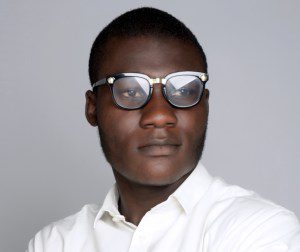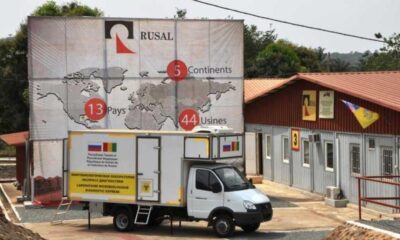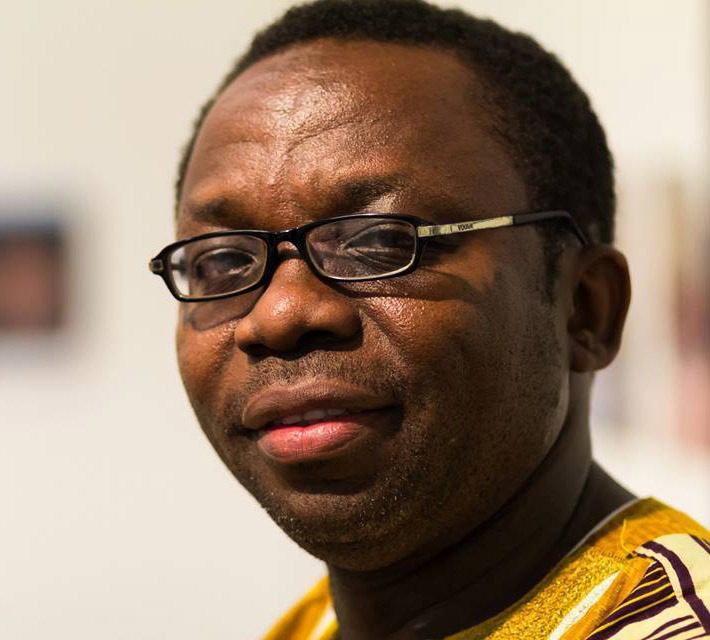Global Issues
Let’s Criminalise Journalism and Live Like the Oppressed -By Alfred Olufemi

“Whatever denies one liberty tilts towards oppression and whatever oppresses another is criminal, which should be treated as such.”
Press gags, censorship, press attacks, threats and victimisation of journalists all over the world have somewhat barricaded the role of the media in terms of transparency and accountability.
The reason for this is not farfetched as the newsmakers, who occupy political offices, only want what suits them and their public relations to be in print. Anything asides that may prompt the request for the head of the journalist or the managers of concerned media outlets, thus making the investigative aspect of reporting, a delicate and dangerous route to ply all through one’s career as a journalist.
Rather than go for the culpable ones who are implicated in the allegations made by reporters, the journalist, whose efforts are geared towards the public good, have been the proverbial bird used to appease the gods.
These professionals, instead of receiving accolades for the good sought after, day-in-day-out, have been the victims of the anger that ought to be vented on exposed evil doers.

Alfred Olufemi
Going by the fact sheets of the Committee to Protect Journalists (CPJ), an independent and nonprofit organisation promoting press freedom worldwide, over 1323 journalists have been killed between 1992 and 2018. Invariably, the profession has been criminalised since the supposed penalties meant for the guilty ones, who are being exposed in reports, have been illegally transferred to the media actors.
For how long do we want to clamour for press freedom? For how long do we continue telling the narratives of Dele Giwa and other martyrs who have died in the course of their reportorial duties, without much difference recorded, in this present age? These questions seem begging for answers as the years go by.
In 2016, an Azerbaijan investigative reporter and award-winning journalist, Khadija Ismayilova, whose works exposed corruption in her country, which included the president’s family, was detained in December 2014 and, following an unfair trial, was convicted in September 2015 on trumped-up charges of embezzlement, illegal entrepreneurship, tax evasion and abuse of office.
Khadija was subjected to personal threats, harassment and blackmail attempts in a bid to silence her; all for the sake of carrying out a constitutional duty.
Also, in 2014, Raif Badawi, an Arabian journalist was sentenced to 10 years imprisonment, 1,000 lashes, a 10-year travel ban, and a lifetime ban from appearing in the media, before eventually being convicted of violating Saudi Arabia’s draconian information technology law and “insulting Islam.”
Mr. Raif said: “We want life for those who call for our death, and rationality for those who desire ignorance for us.”
Another unfortunate case was that of the Maltese anti-corruption journalist, Daphne Caruana Galizia, who was bombed in a car. According to The Express Tribune, those who ordered her murder remain free, while others continuing her work in the EU’s smallest state are branded traitors.
Mrs. Galizia was one of the journalists who worked on the Panama Papers, 11.5 million leaked documents from the Panamanian law firm, Mossack Fonseca, which exposed how the affluents all over the world used shell companies and offshore tax havens to hide their wealth.
As at July 2017, the International Consortium of Investigative Journalists had published files that revealed the offshore holdings of 140 politicians and public officials from around the world.
Across the globe, some political office holders, such as current and former world leaders, including the prime ministers of Iceland and Pakistan, the president of Ukraine, and the king of Saudi Arabia, have been brought to book, while some are still on trial following investigations carried out on Panama Papers. These are the criminals to be victimised and not press men.
Amongst many cases of violence and injustice against journalists, particularly in Nigeria, are: the illegal detention of Jones Abiri and the Elombah brothers, the unlawful killing of Giobaro of Bayelsa State-owned radio station, Lawrence Okojie of the Nigerian Television Authority (NTA), Benin and Ikechukwu Onubogu of Anambra State Broadcasting Service (ABS). The list is near endless.
Owing to this height of impunity, it is logical to think that the society is better off in the hands of the oppressed as we criminalise journalism, which has a stated public role in Section 22 of the 1999 Nigerian Constitution.
Also, Article 19 of the Universal Declaration of Human Rights (UDHR), states that everyone has the right to freedom of opinion and expression, which includes the freedom to hold opinions without interference and to seek, receive and impart information and ideas through any media and regardless of frontiers.
Then, let’s picture a society where there’s no one to speak up, a society where no idea is opposed, where a man can call for his brother’s head and no being would blink an eye or object to that. We’ll gradually sink into the ocean of anarchy and the situation become more worse than what any nation of the world could be currently going through. That’s the outcome of interdicting the fourth estate of government, which checks the excesses of the three tiers of government.
Having highlighted the disastrous consequences of declaring journalism an outlaw profession, which is evident in the clampdown on press freedom, it is expedient to make a clarion call to citizens and leaders to support the development of legislation and institutions that safeguard the independence of the media, promote accountability and guarantee public access to information.
Non-Governmental organisations and institutions are urged to support trainings for journalists in the fields of human rights, ethical and quality journalism, including safety, so as to combat impunity for attacks on and the killing of journalists and media workers.
Although, the United Nations has adopted several resolutions and a plan of action on the safety of journalists and the issue of impunity across the globe, sustained and conscious efforts must be made to stop the attacks on and killing of journalists, and when such incidents occur, they must be investigated and the perpetrators punished. For instance, it is disheartening that up till date, the Maltese government is yet to nab those responsible for the killing of Mrs. Galizia. They have lost the consciousness that for every journalist that is killed, many other people are pressured to silence.
Conclusively, Mokokoma Mokhonoana, a South African based writer, in his quest for press freedom was quoted saying; “Freedom of speech is unnecessary if the people to whom it is granted do not think for themselves.”
People all over the world should speak up, demand a better system if need be, uproot corrupt public officers, keep authorities on their toes and seek a better future for upcoming generations, not only because they want to think of themselves or be futuristic but also because journalism is not a crime.
Alfred Olufemi is a student journalist currently studying in Obafemi Awolowo university, Ile-Ife. He is best reached via alfredolufemi75@gmail.com

















